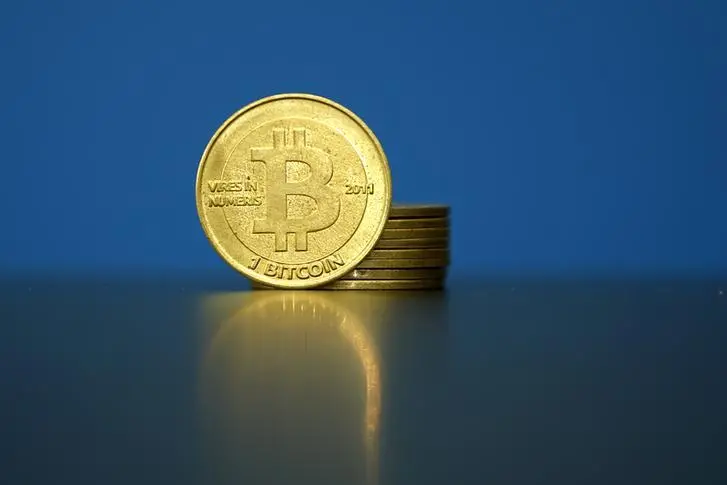PHOTO
WASHINGTON - America’s watchdogs are putting crypto-currencies on a relatively long leash. Regulators warned Congress on Tuesday that bitcoin and the like test the limits of current laws. But they also seem willing to let the market continue to develop, as long as they can keep fraud in check. The heads of both the Securities and Exchange Commission and the Commodity Futures Trading Commission outlined the shortcomings of the existing regulatory framework for the Senate Banking Committee. Just as with more traditional financial markets, a patchwork of agencies at both the state and federal levels monitor different slices of the market. That has led to concerns about regulatory gaps, which might in turn prove fertile ground for dodgy behavior.
Such fears are justified. More than 10 percent of funds from initial coin offerings have been stolen, according to EY. There’s also no shortage of crypto-disasters, including news last week that hackers pilfered some $530 million worth of virtual currency from Coincheck, a Japanese platform.
Cue the usual line from American regulators that investors should take caution. The watchdogs did not, though, demand immediate and sweeping new powers. Instead, they acknowledged the potential benefits of digital coinage, including lower costs for businesses, and advocated a “do no harm” approach to new rules. They also appeared less alarmed than many pundits by the recent wild crypto-currency price swings. Christopher Giancarlo, head of the CFTC, noted that some traditional securities can be every bit as unstable. The CBOE Market Volatility Index, for instance, soared 160 percent over the past five trading days as of midday Tuesday.
Along with Jay Clayton, his counterpart at the SEC, Giancarlo struck a reasonably balanced tone. That makes sense considering virtual coinage remains, at around $370 billion, relatively small – it’s less than half Apple’s market value and just a sliver of the size of the global foreign-exchange market.
Theirs is a starkly different view to their counterparts in China and South Korea. Regulators there recently banned initial coin offerings and imposed restrictions on trading digital currencies.
Giancarlo and Clayton did hint that they may at some point need to consider asking for more powers to deal with crypto-currencies. But their measured approach makes sense. Regulators don’t have to buy the promise of crypto-currencies, but they shouldn’t sell them short, either.
CONTEXT NEWS
- The heads of the U.S. Securities and Exchange Commission and Commodity Futures Trading Commission testified before the Senate Banking Committee on Feb. 6. Both discussed the shortcomings of the regulatory framework for virtual currencies and tokens.
- The hearing came as the price of bitcoin continued to swing wildly. As of midday EST on Feb. 6, the virtual currency stood more than 3 percent above the start of the day after initially plummeting some 14 percent. It has roughly halved in value since the start of the year, according to Thomson Reuters data.
- The total value of crypto-currencies tracked by coinmarketcap.com stands at around $332 billion, with virtual tokens adding another $36 billion.
(Editing by Antony Currie and Martin Langfield)
© Reuters News 2018
Such fears are justified. More than 10 percent of funds from initial coin offerings have been stolen, according to EY. There’s also no shortage of crypto-disasters, including news last week that hackers pilfered some $530 million worth of virtual currency from Coincheck, a Japanese platform.
Cue the usual line from American regulators that investors should take caution. The watchdogs did not, though, demand immediate and sweeping new powers. Instead, they acknowledged the potential benefits of digital coinage, including lower costs for businesses, and advocated a “do no harm” approach to new rules. They also appeared less alarmed than many pundits by the recent wild crypto-currency price swings. Christopher Giancarlo, head of the CFTC, noted that some traditional securities can be every bit as unstable. The CBOE Market Volatility Index, for instance, soared 160 percent over the past five trading days as of midday Tuesday.
Along with Jay Clayton, his counterpart at the SEC, Giancarlo struck a reasonably balanced tone. That makes sense considering virtual coinage remains, at around $370 billion, relatively small – it’s less than half Apple’s market value and just a sliver of the size of the global foreign-exchange market.
Theirs is a starkly different view to their counterparts in China and South Korea. Regulators there recently banned initial coin offerings and imposed restrictions on trading digital currencies.
Giancarlo and Clayton did hint that they may at some point need to consider asking for more powers to deal with crypto-currencies. But their measured approach makes sense. Regulators don’t have to buy the promise of crypto-currencies, but they shouldn’t sell them short, either.
CONTEXT NEWS
- The heads of the U.S. Securities and Exchange Commission and Commodity Futures Trading Commission testified before the Senate Banking Committee on Feb. 6. Both discussed the shortcomings of the regulatory framework for virtual currencies and tokens.
- The hearing came as the price of bitcoin continued to swing wildly. As of midday EST on Feb. 6, the virtual currency stood more than 3 percent above the start of the day after initially plummeting some 14 percent. It has roughly halved in value since the start of the year, according to Thomson Reuters data.
- The total value of crypto-currencies tracked by coinmarketcap.com stands at around $332 billion, with virtual tokens adding another $36 billion.
(Editing by Antony Currie and Martin Langfield)
© Reuters News 2018





















